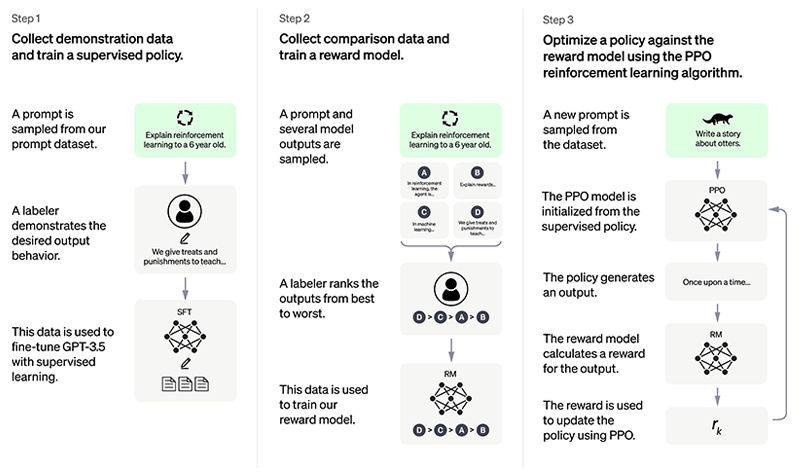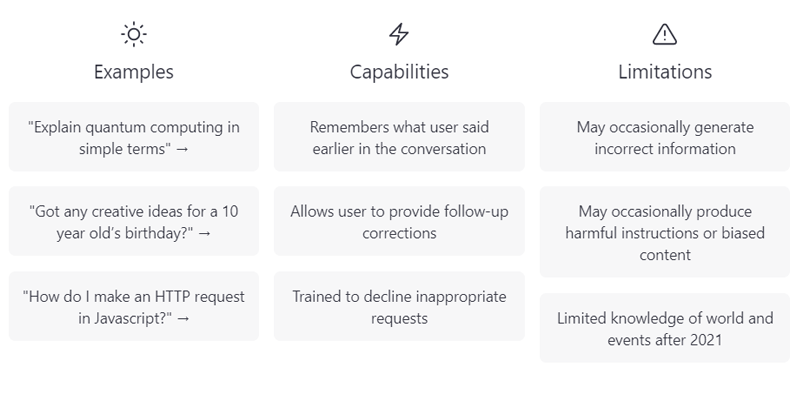The Transformative Influence of ChatGPT: Revolutionizing the Future of Business
The advent of artificial intelligence (AI) has revolutionized the way businesses operate. Among the most recent developments in AI is the introduction of conversational AI. One such conversational AI technology that has gained popularity in a short span is ChatGPT.
According to Similarweb, the ChatGPT website has been visited a total of nearly 2 billion times so far and gets 25 million daily visits.
ChatGPT is a language model developed by OpenAI that is designed to generate human-like responses to natural language prompts. It was introduced in June 2020 and has quickly become one of the most advanced and widely used language models in the world. In this article, we will take a closer look at what ChatGPT is, how it works, and its potential impact on the businesses.
What is ChatGPT and how does it work?
ChatGPT is based on a conversational AI system that leverages deep learning models to generate human-like text responses. The system is pre-trained on large volumes of data, allowing it to understand context and provide relevant responses to a variety of questions. The technology is designed to engage in natural language conversations, which makes it an excellent tool for improving customer experience and streamlining business operations.

How can businesses use ChatGPT?
ChatGPT has a wide range of applications for businesses. Here are some of the ways in which businesses can leverage ChatGPT to enhance their operations:
- Streamlining operations : ChatGPT can automate repetitive and time-consuming tasks such as customer support and data analysis. This can increase the productivity of employees by letting them focus on more strategic & innovative activities than mundane tasks.
- Customer experience : It can provide 24/7 customer support, which can improve customer satisfaction and reduce response times. It can also be used to personalize customer interactions, making them feel more connected to the brand.
- Cutting-edge innovation : ChatGPT can create innovative products and services that leverage natural language processing technology- giving businesses a competitive edge by providing unique and engaging experiences to their customers.
- Sales and Marketing : It can be used to engage with potential customers and provide personalized recommendations based on their preferences and behavior. ChatGPT can also assist in lead generation and qualifying leads.
- Product Development : ChatGPT can gather feedback from customers and analyze their responses. This can help businesses understand customer needs and preferences and inform product development decisions.
- Employee Training and Development : ChatGPT can provide personalized training to employees based on their skill level and learning style. It can also be used to answer employees' questions and provide support.
- Data Analysis: It can analyze large volumes of data and identify patterns and insights. This can help businesses make data-driven decisions and improve their operations.
What types of businesses can utilize ChatGPT?
ChatGPT can be used by businesses of all sizes and industries. Here are some examples of the types of businesses that can benefit from ChatGPT:
- Retail and E-commerce
- Healthcare
- Banking and Finance
- Education
- Telecommunications
- Manufacturing and Logistics
- Tourism and hospitality
- Real estate
- Entertainment
- Marketing and advertising
ChatGPT Pros and Cons
Like any technology, it has its pros and cons. Here are some of the advantages and disadvantages of using ChatGPT:
Pros:
- 24/7 Availability : It can work around the clock to provide customer support, which can increase customer satisfaction and retention
- Consistency : ChatGPT can deliver consistent responses to customer queries, ensuring that all customers receive the same level of service
- Cost-Effective : Using ChatGPT can reduce the need for human customer support agents, which can result in cost savings for businesses
- Scalability : It can handle a high volume of customer inquiries simultaneously, making it easy to scale up support as the business grows
- Speed : It can provide instant responses to customer inquiries, reducing response time and improving customer satisfaction
Pros:
- Limited Contextual Understanding : ChatGPT can sometimes struggle to understand the full context of a customer's query, which can result in incorrect or irrelevant responses
- Limited Emotional Intelligence : It may not be able to identify and respond appropriately to emotional cues from customers, potentially leading to a less personalized experience
- Limited Customization : While ChatGPT can be customized, it may not be able to fully replicate the brand voice or tone that a human customer support agent can provide
- Limited Problem-Solving Ability : It is designed to provide responses based on pre-existing data, which means it may not be able to provide creative solutions to unique customer problems
- Security and Privacy Concerns : There may be security and privacy concerns related to storing and using customer data with ChatGPT, which businesses must address

Summing up
While ChatGPT is an impressive technological achievement, it also raises important ethical and social questions. As an AI model, it has the potential to reinforce biases and perpetuate harmful stereotypes if not trained and used responsibly. It is important for businesses and users to be aware of these risks and to take steps to ensure that AI models like ChatGPT are developed and used in an ethical and beneficial manner.
In conclusion, ChatGPT is a powerful tool that has the potential to revolutionize the way we interact with machines and each other. As AI technology continues to develop, we can expect ChatGPT to become even more advanced and widely used, offering new possibilities for communication, learning, and creativity.
